iPhone 16 Pro one month review: an Apple Intelligence intro
One month using the iPhone 16 Pro proves that the company's first foray into generative AI is rudimentary but useful -- but don't upgrade just for Apple Intelligence.
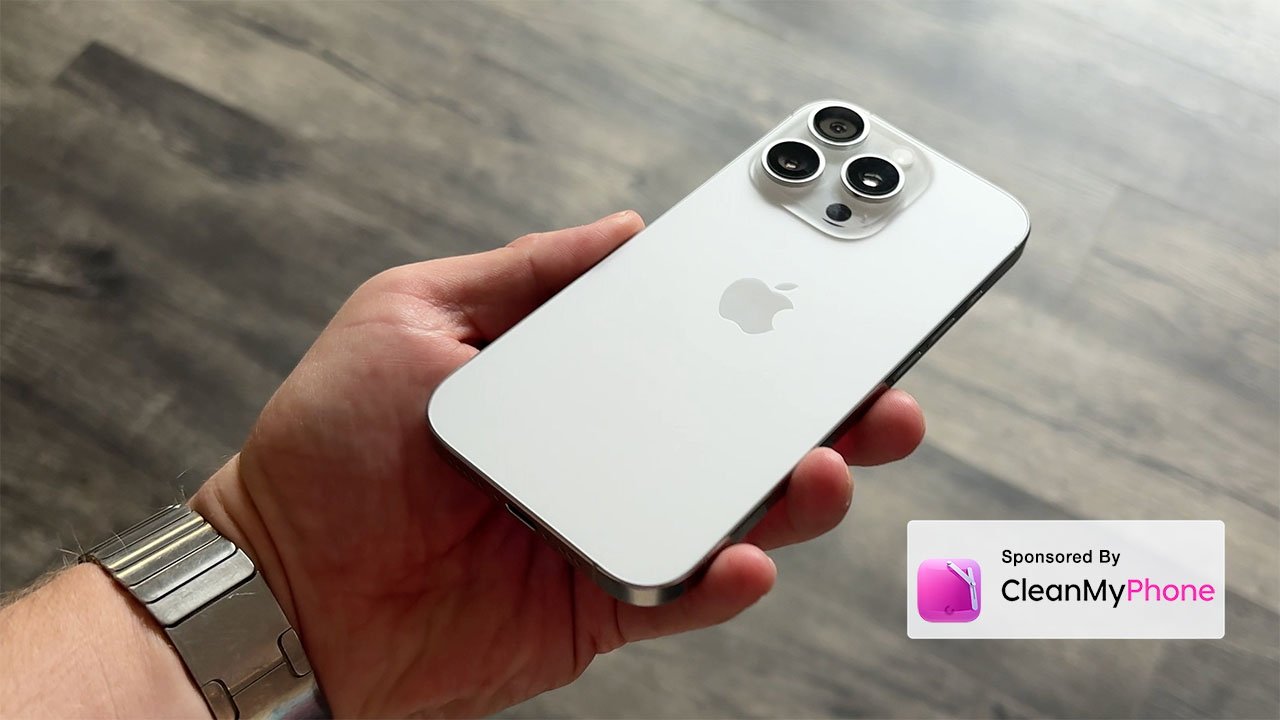
iPhone 16 Pro one month review: Holding Apple's newest smartphone
In the initial AppleInsider review of iPhone 16 Pro, Mike called it the sweet spot for performance, price, and device size. One month in with the addition of Apple Intelligence, and that holds true.
Apple Intelligence didn't officially launch until the end of October, but I've been using the beta without any real issues in order to test the features for this follow-up review. To sum it up, Apple Intelligence is a useful feature set depending on individual needs, but it's not life-changing -- not that any so-called "AI" truly is.
There's a lot to discuss between the iOS 18.1 update with Apple Intelligence and actually using the iPhone 16 Pro, so this review will focus on the iPhone aspects and less on software. I'll be going more in-depth with the iOS 18.1 and iPadOS 18.1 review covering Apple Intelligence features more directly.
iPhone 16 Pro one month review: design & features
Apple's iPhone 16 Pro and iPhone 16 Pro Max may have gotten a bit bigger, but after a month in, I've noticed no negative effect. The display is bigger, and some apps take advantage of this, and battery life has improved, but the size and weight aren't an issue.
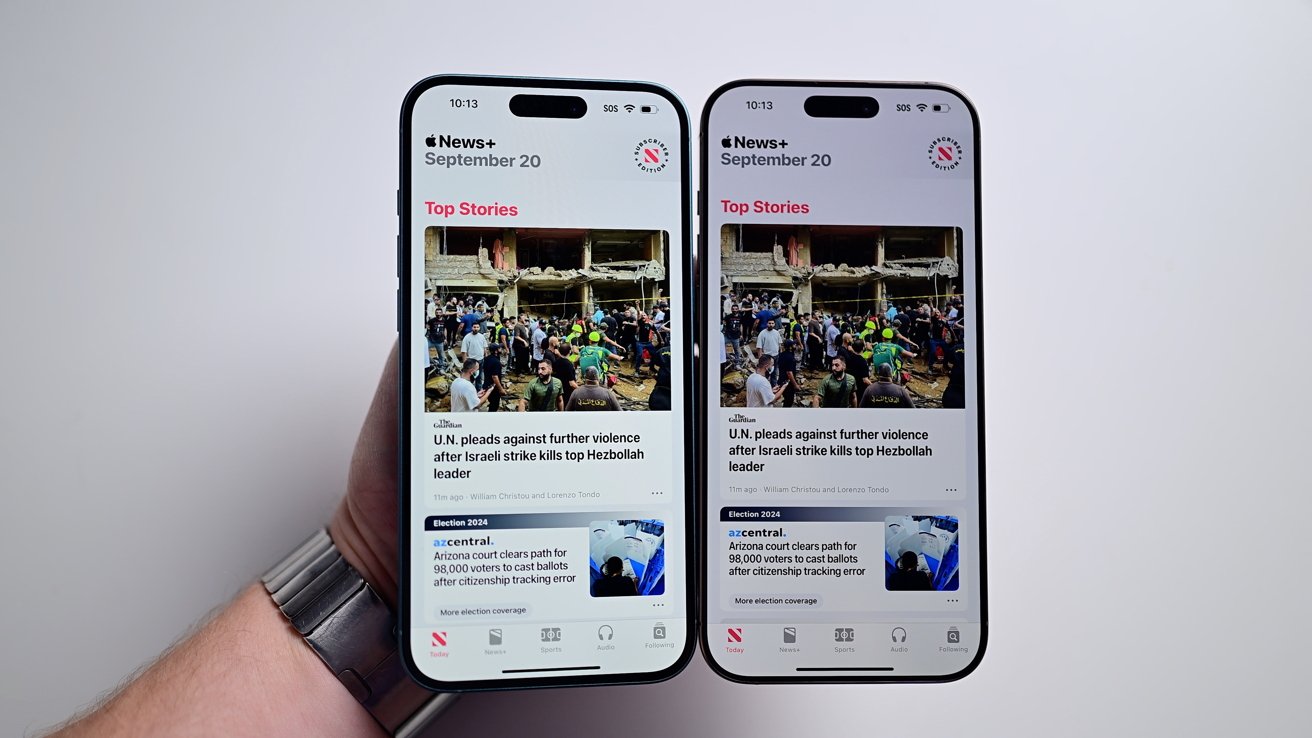
iPhone 16 Pro one month review: The iPhone 16 (left) has a slightly smaller screen than the iPhone 16 Pro (right)
I'm not sure that more increase won't be an issue in the future. At 6.3 inches, it's creeping up on previous Pro Max sizes, and I doubt this size class needs to be at 6.5 inches.
Some of this size gain was achieved by shrinking the bezels, and it is notable. Moving from the iPhone 15 Pro may not show that much of a dramatic difference, but when comparing to older bezels, these may as well not exist.
The 2,000 nit display has a 460ppi pixel density, 120Hz ProMotion, P3 color support, and HDR. The Dynamic Island is still around and more useful than ever with new apps like Apple Sports adding features.
It's not often that an iPhone update makes me rethink my entire setup. Every aspect that can be customized had to be rethought thanks to Camera Control.
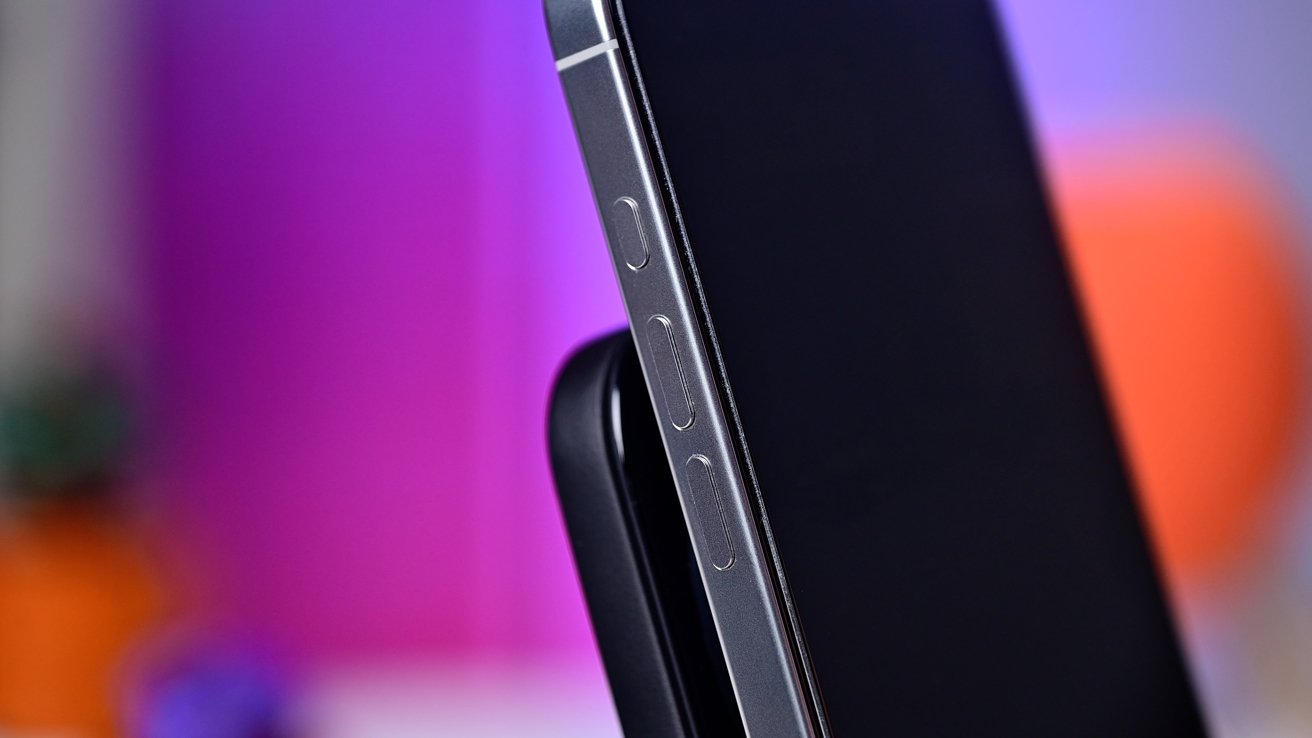
iPhone 16 Pro one month review: Action Button is on the entire iPhone 16 lineup
I reconfigured the Action Button Shortcuts folder with a Delta emulator launcher and Flashlight toggle in place of Camera and Halide. The Camera app button is no longer on any Lock Screen in any Focus -- instead replaced by Alarm in Sleep, Delta in Gaming, or Slack in Work.
Even the Control Center had some changes made because I no longer need a Camera button there. The iPhone has so many ways to view information and launch apps, I'm a little overwhelmed at the options.
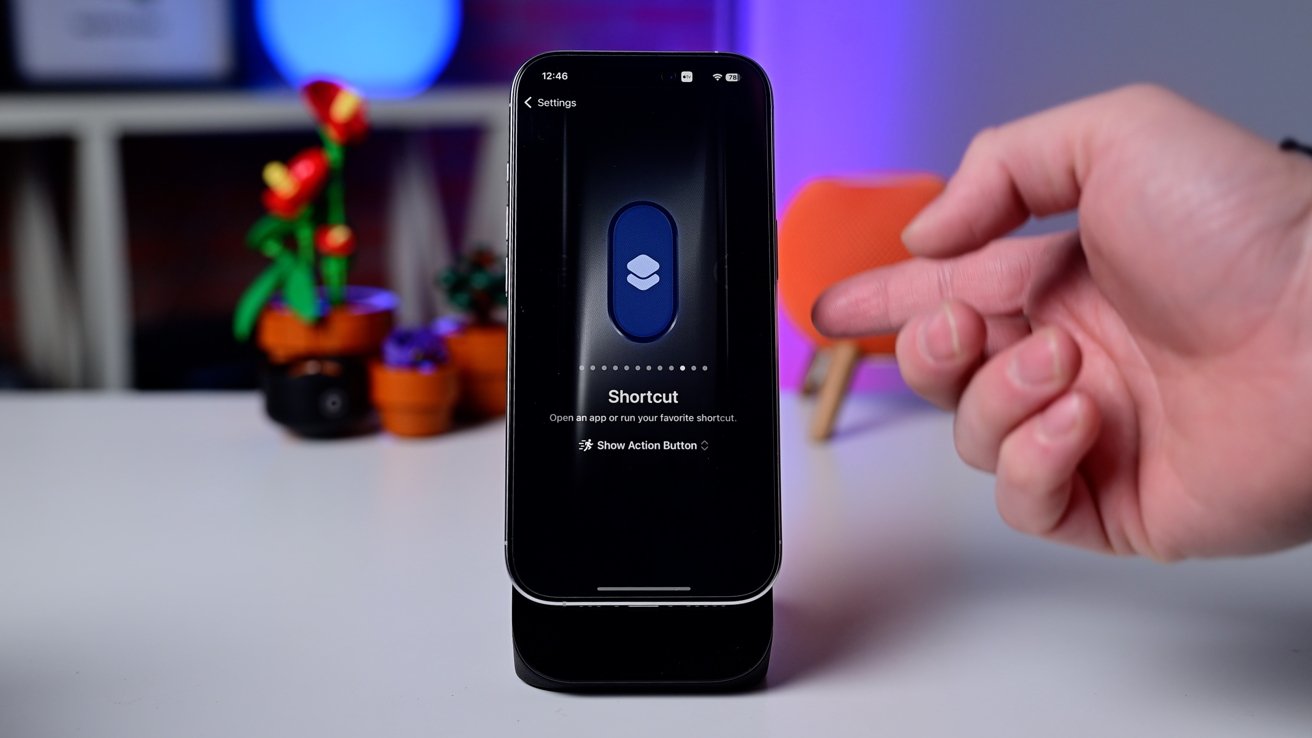
iPhone 16 Pro one month review: Easy to customize the Action Button
The iPhone 16 Pro runs iOS and has access to the App Store. The hardware changes are welcome and make a real change to how I use the device over the iPhone 15 generation, but most will be fine holding off if they're on an iPhone 14 or newer.
iPhone 16 Pro one month review: cameras & camera control
The photographic pipeline was upgraded for the iPhone 16 lineup, and a new Fusion Camera aids in taking better photos in many conditions. But the biggest physical upgrade was to the Ultra Wide Camera, gaining a 48MP sensor.
Every camera upgrade has made some impact on my photography process. I'm thinking about Photographic Styles when shooting or editing, I'm using the macro mode more, and I don't shy away from the Ultra Wide camera.
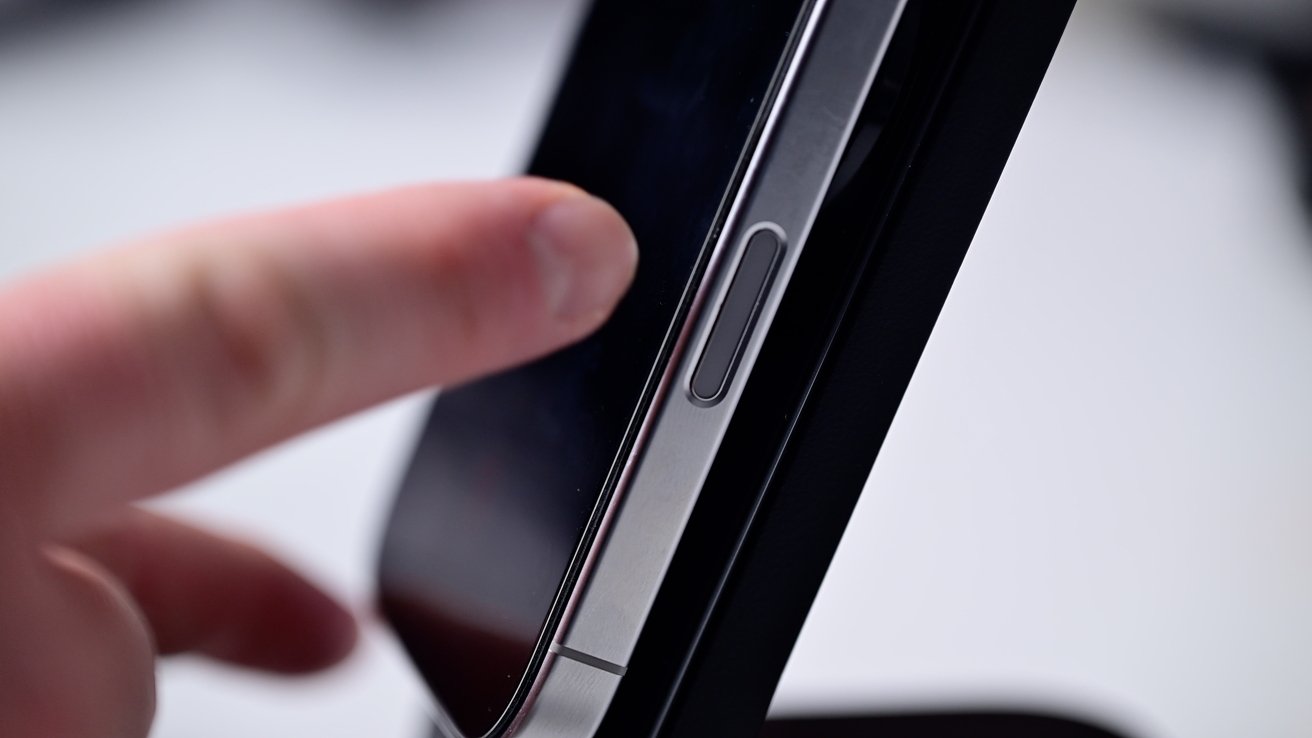
iPhone 16 Pro one month review:
If you're looking for an in-depth overview of the cameras, the iPhone 16 Pro and iPhone 16 Pro Max reviews go into detail on these cameras and their upgrades. One month later, I still stand by the fact that reversible Photographic Styles are the most significant change to the cameras.
Camera Control has taken some getting used to. Once I trained myself on where the button is actually located, it became a habit to press it as I picked up my phone for a photo.
The only thing I've used Camera Control for is zoom control (yes, pedants, not actual zoom but switching cameras and digital crop). I'm either in the Zoom or Cameras control since everything else can be adjusted in post.
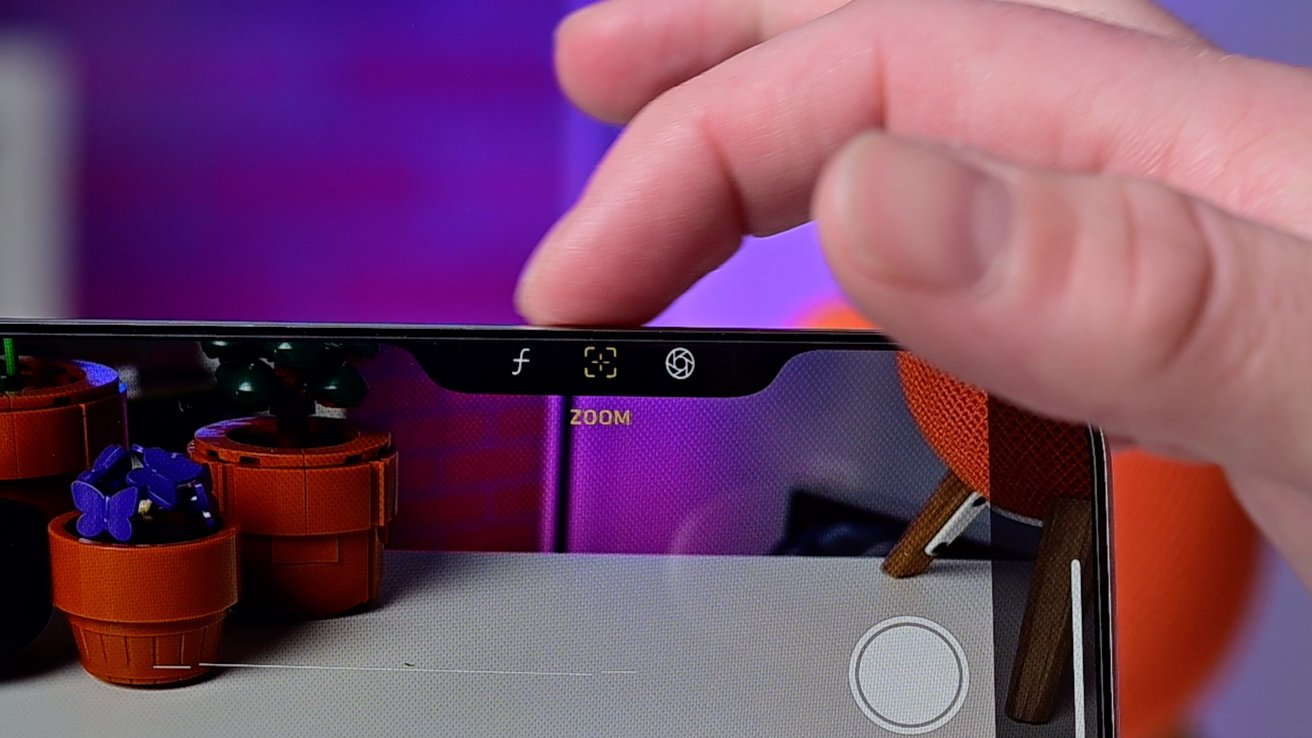
iPhone 16 Pro one month review: Using the Camera Control to adjust zoom
The forthcoming update that enables focus and exposure lock with a light press will be interesting. Until then, Camera Control is an excellent shutter and zoom controller.
Reversible Photographic Styles are the big hit, and I hope Apple opens them up further by allowing third-party apps to use them or donate new styles. However, Camera Control is an excellent addition that will get better with updates and practice.
iPhone 16 Pro one month review: Apple Intelligence
I have been incredibly skeptical of this so-called "Artificial Intelligence" technology that utilizes large language models (LLMs) and generative pre-trained transformers (GPTs) to spit out what is essentially a really good next-word prediction. Apple has taken these technologies and implemented them into iOS while taking advantage of advanced neural processing on the A18 (Pro).
Many pundits seem to believe Apple is behind in AI, and in some cases, they are. Apple didn't rush out of the gate last year with half-finished products that multiplied fingers, confidently spouted lies, and clearly stole from real content.
Instead, Apple waited until it had a product that fit its mission statement -- safe, private, secure. Apple Intelligence is a tool that is used on content or information that already exists, and that's what sets it apart.
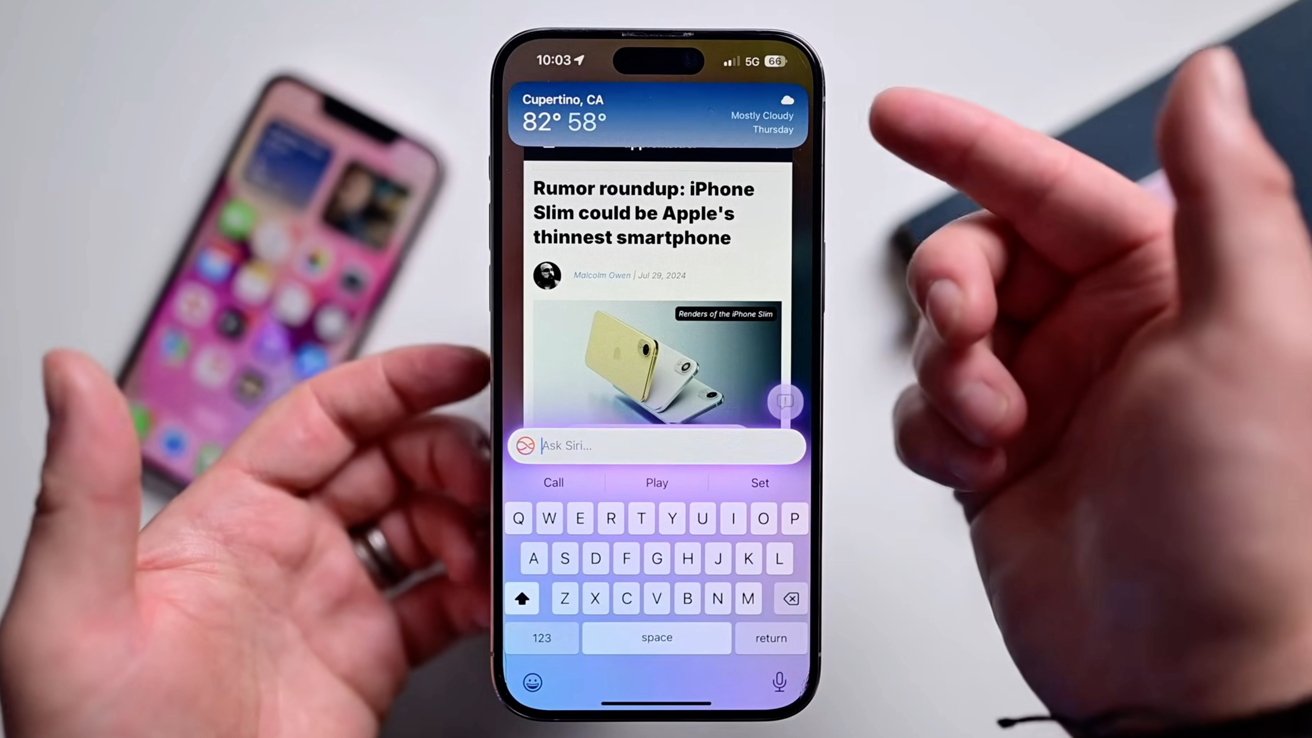
iPhone 16 Pro one month review: Apple Intelligence arrives in iOS 18.1
My stance is that there's nothing particularly revolutionary about AI for consumers. There are some amazing applications in research and industry, but the most use I've seen from Copilot or ChatGPT seems to be generating text, images, and now video from nothing.
Apple Intelligence, on the other hand, slipped into the operating system almost too quietly. For me, it has become useful in my day-to-day life, saved me money, and made a difference. That can't be said of the other AI tools that are supposedly ahead.
What's here now with Apple Intelligence
More specifically, iOS 18.1 contains only a few of the promised initial features of Apple Intelligence. Writing Tools, system-wide summaries, and a couple of Photos features like Clean Up.
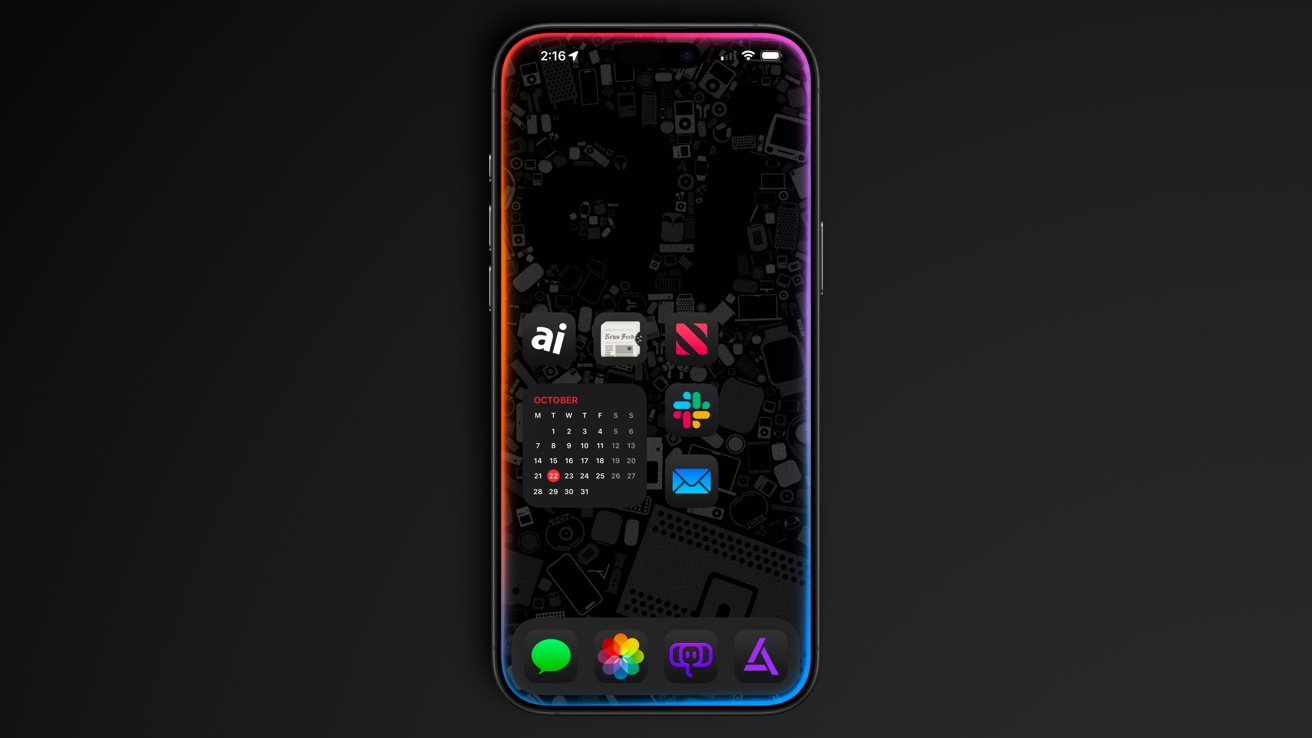
iPhone 16 Pro review: a new Siri animation
Sure, there's a new Siri animation, and it does better parsing inputs, even when you've made a mistake. However, the full Siri revamp isn't due until something like iOS 18.4, which is when it'll use developer-provided app intents to understand what's on screen or available actions in apps.
Writing Tools have fully replaced Grammarly Premium for me, an instant savings of $140 per year, which I've paid about $500 lifetime. Grammarly was always a good tool for finding spelling errors, missing punctuation, or more advanced things like syntax errors.
Though, sometime around the "AI is in everything" moment in 2023, Grammarly got worse. They changed something, relying more on the new hotness AI, and I've used it begrudgingly since.
Enter Apple Intelligence and Proofread. While it was shaky at first, I've enough trust in it now to cancel Grammarly and save some money -- something no other AI tool has done for me.
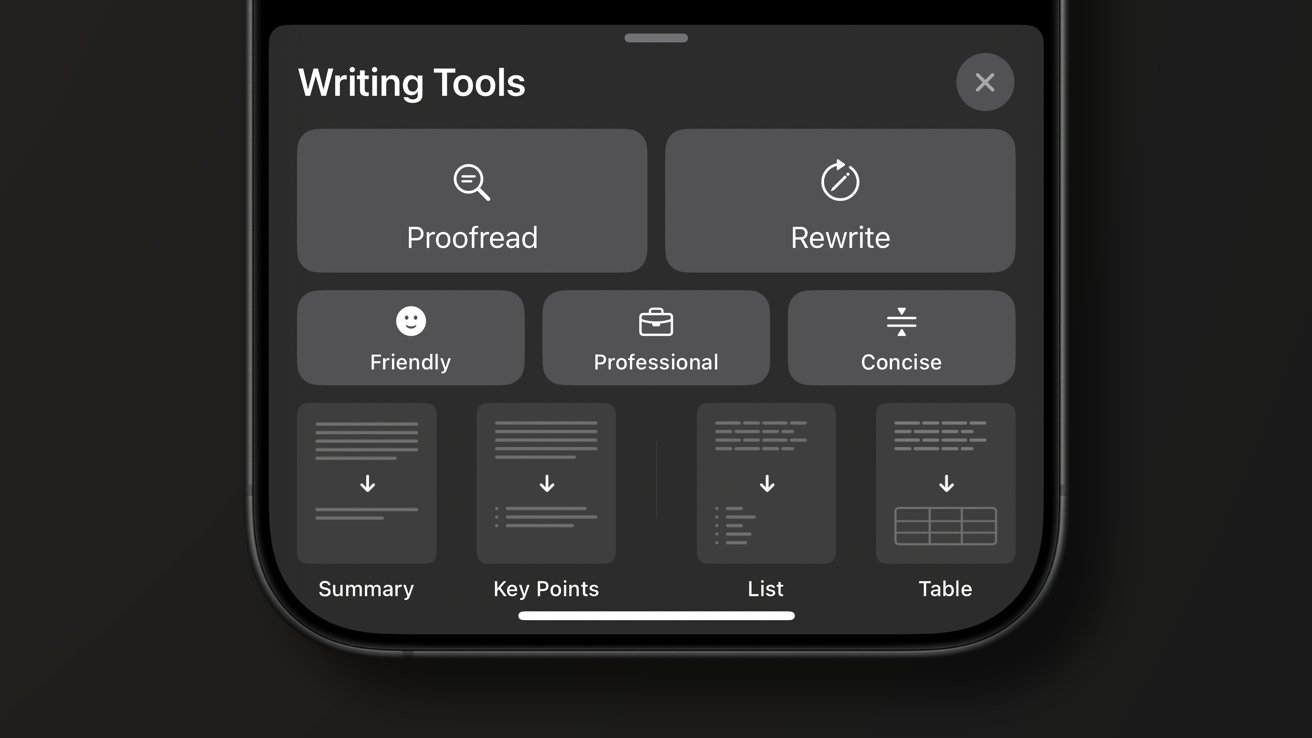
iPhone 16 Pro review: Writing Tools are available system wide
Writing Tools also include rewriting content to be more professional or friendly, or even helping make something more concise. There are also tools for converting the input into summaries, key points, lists, or tables.
I've played around with these other features in Writing Tools, but I'm not sure if they will ever fit into my workflows. That said, summarization has been very useful elsewhere in the system.
Seeing what an email is about instead of the first few lines of "hope you're doing well, we're reaching out" etc. has been helpful in quick email triage. And while notification summaries are hit and miss depending on the context, the ones for work summarizing RSS feeds have been useful.
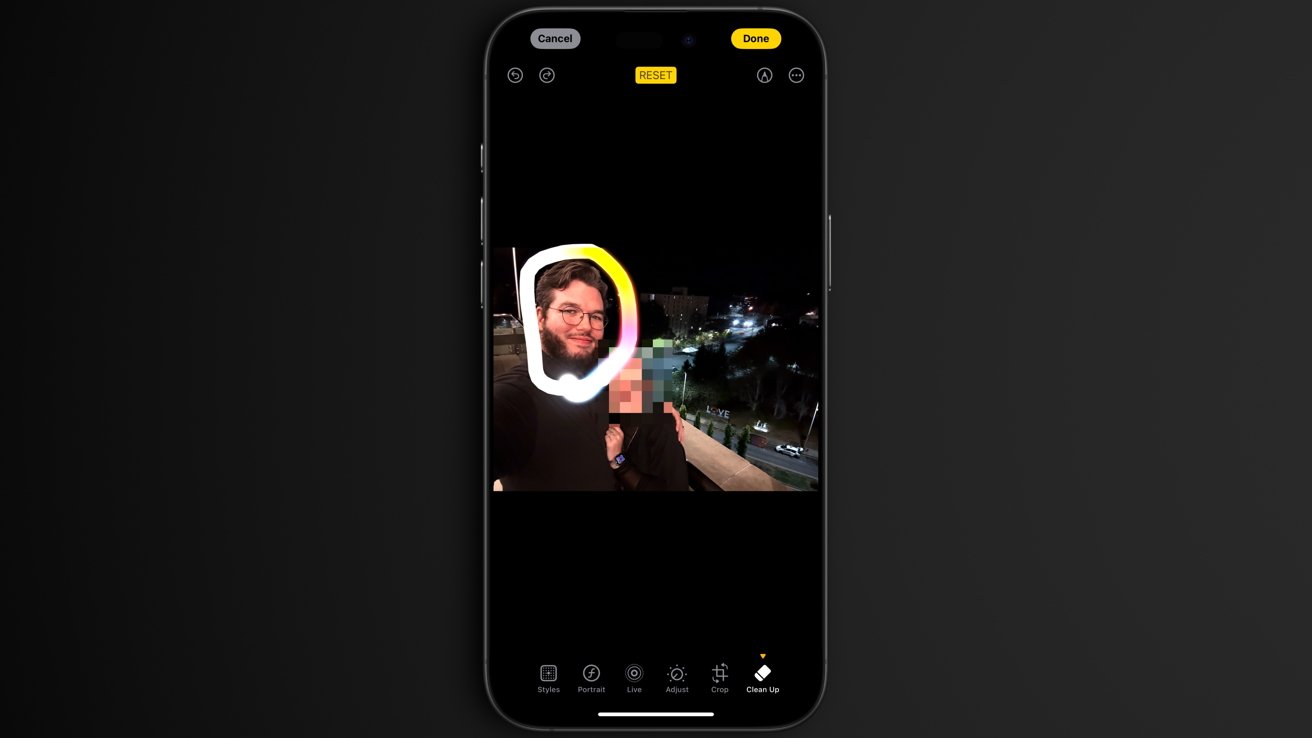
iPhone 16 Pro review: Clean Up in Photos blurs faces, removes objects
I've found that having Clean Up in Photos has let me rely on the app more. If there's an object that needs removing or a face that needs obscured, Clean Up is an easy option that doesn't require a second app.
I'll dive more into the individual uses of Apple Intelligence in an iOS 18.1 review of the features, but focusing in on the iPhone 16 Pro, it's not a reason to run out and buy a device. The initial launch of Apple's AI isn't the most exciting in the world, but it is a useful, privacy-focused take on the technology we should have expected.
We'll see how Apple Intelligence evolves over the next few years, but it is at least making a positive impact on my workflows today. Other tools exist and provide different or even more advanced options for users, but the difference is the same advantage Apple always has -- it's on the iPhone, and I can use it today.
One month with iPhone 16 Pro
After 17 years of iPhone, it's hard for Apple to offer a life-altering upgrade in a simple year-over-year iterative package. The world knows what an iPhone is, so going too far off the tracks with an incredible redesign or form factor change could do more harm than good.
I said it in my initial review -- the iPhone 16 Pro and iPhone 16 Pro Max are more than iterative and a bigger upgrade than most. Apple never adds new buttons, especially one with so many control options as Camera Control.
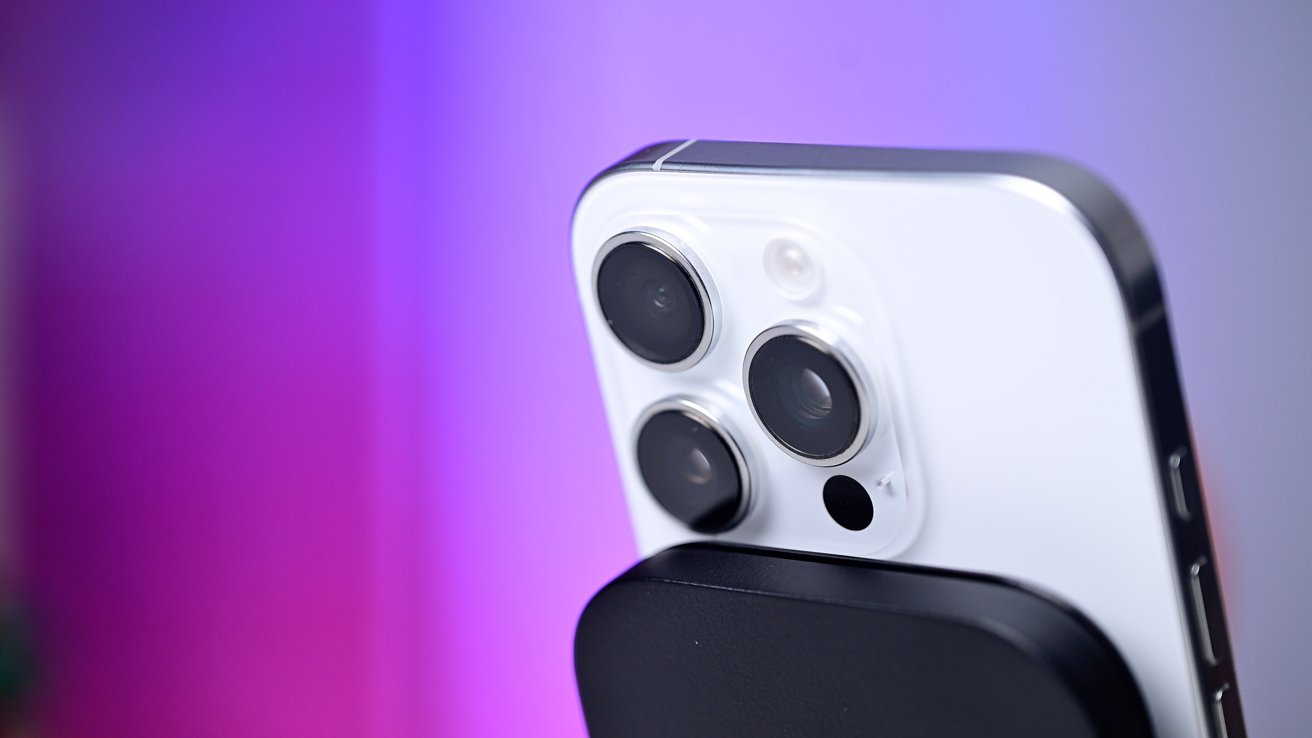
iPhone 16 Pro one month review: The three camera setup on iPhone 16 Pro
The extended battery life is evident every day, especially ones I spend away from a charger. Wi-Fi 7 helps future-proof the device, and 25W MagSafe is a nice addition as we continue to reduce our reliance on the physical port.
Apple Intelligence may be boring, but it is still significant. While you shouldn't rush out to buy an iPhone 16 for the features, it is good to see Apple working in the public eye on its vision for artificial intelligence.
The A18 Pro is a powerful chipset, but it is still quite frustrating that the gaming narrative is still frozen in time. Yet another title, Resident Evil 2, is coming to iPhone from Capcom, but nothing else along those lines has been announced.
iPhone 16 Pro is worth the purchase, especially if you're coming from an older iPhone. While Photographic Styles and Camera Control are the big features this time around, I do think Apple Intelligence will grow in importance over the next year.
iPhone 16 Pro one month review: Pros
- Bigger but not too big
- Longer battery life is noticeable
- Camera upgrades, Camera Control, and Photographic Styles are impactful for all users
- Apple Intelligence makes a difference, but....
iPhone 16 Pro one month review: Cons
- ...Apple Intelligence is underwhelming
- Case makers still not doing anything with Camera Control beyond cutouts
- Action button feels tacked on one year later
Rating: 4.5 out of 5
Apple makes a solid smartphone, there's no getting around it. Unless we completely rethink our scoring system or Apple releases an absolute failure, iPhone Pros will likely consistently score between 4 and 5.
Look to the content, not the score, to fully understand what I think of iPhone 16 Pro.
Where to buy and save on Apple's iPhone 16 Pro
Wireless carriers are offering aggressive incentives through bill credits and trade-in deals on the iPhone 16 Pro. At press time, the offers deliver up to $1,000 off the handset, which can be found below. You can also visit our iPhone 16 Pro Price Guide for easy side-by-side comparison of the current offers.
- Boost Mobile on Amazon: Save up to $1,000 (no trade-in required)*
- AT&T Wireless: Get an iPhone 16 Pro on AT&T with qualifying trade*
- Verizon Wireless: Get an iPhone 16 Pro at Verizon for as low as $5 per month*
*Terms and conditions apply. Please see site for details.
If you're looking for promotions on the iPhone 16 or iPhone 16 Pro Max, today's best iPhone deals can be found on the entire range.
Read on AppleInsider


Comments
With this initial release of Apple Intelligence, I'm now feeling there's an unexpected benefit to the slow rollout of AI features: I can actually focus on putting just a few new tools to good use and work them into my habits of how I use my Apple devices. Versus, at least for me, a whole toolbox of new stuff that I put to scattershot use for a while and never actually master any of it.
Besides the cool glow for Siri in 18.1 (which carries over to the CarPlay screen!), I've been impressed with the increased speed and snappiness of Siri. Which means, of course, that you can now get stupid answers faster! But seriously, the execution of commands like, "Siri, phone NAME at home," is noticeably quicker. And Apple seems to have dropped the annoyingly delayed "Mm-himm?" response when you invoke Siri, which usually led to exchanges like: "Siri, phone NAME at... Mm-hmm?" with that delayed response causing Siri to miss the word "home," and then the reply, "Which number did you want me to use to phone NAME? Work, mobile or home?"
I have set mine on 80% max charge. I can quickly change to 95 or 100% if I'm going out for a period. So just use it as they suggest, problem fixed.
If the phone is meant to be left on, just leave it on.
Well, they have with the camera control. It shows that Apple still works the right way, driven by what is beneficial for user, not being constrained by technologists, nor the opposite of just add more by marketing people.
I have observed over decades the button mania. IBM had 3270 terminals with rows of function buttons. Burroughs had the TD830 with minimal keys and a few function buttons (control, receive, transmit, and a couple of others I can't remember right now). Then Apple cut down on the three-button mouse of Doug Englebart/Xerox PARC. Apple's mouse was minimal and functional. Microsoft had to add more buttons.
All of computing is about making things minimal. (That is why elsewhere I condemn C++ as being the most awful, tasteless language ever.)
Keyboards for Windows also had multitude of buttons.
When iPod Touch came out as predecessor to iPhone, Apple insisted on no buttons. This forced developers to use the screen for all it was worth and provide a common experience. If physical buttons had been added, developers would have come up with their own inconsistent usages.
When Apple add a button like this, it is significant, and not just because some clever technologist has invented it (although they have), but because it can be made useful and help photographers take faster pictures. And it has not been added just because some marketing person wanted more buttons as their 'point of difference'.
Just adding features because they can or because marketing demands it without a clear purpose is the crass and tasteless development that most of the computing industry suffers from.